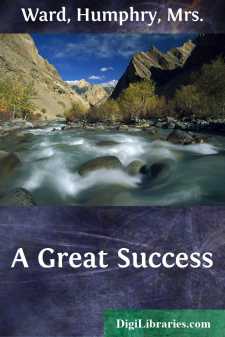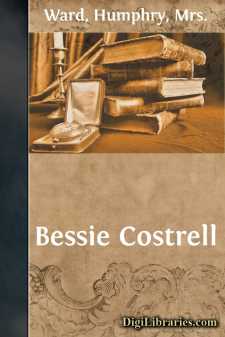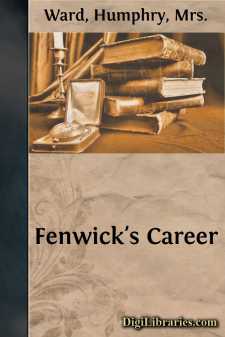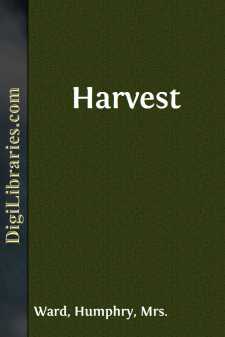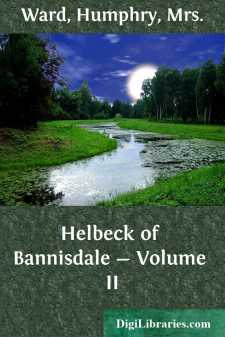Categories
- Antiques & Collectibles 13
- Architecture 36
- Art 48
- Bibles 22
- Biography & Autobiography 813
- Body, Mind & Spirit 141
- Business & Economics 28
- Children's Books 12
- Children's Fiction 9
- Computers 4
- Cooking 94
- Crafts & Hobbies 4
- Drama 346
- Education 46
- Family & Relationships 57
- Fiction 11826
- Games 19
- Gardening 17
- Health & Fitness 34
- History 1377
- House & Home 1
- Humor 147
- Juvenile Fiction 1873
- Juvenile Nonfiction 202
- Language Arts & Disciplines 88
- Law 16
- Literary Collections 686
- Literary Criticism 179
- Mathematics 13
- Medical 41
- Music 40
- Nature 179
- Non-Classifiable 1768
- Performing Arts 7
- Periodicals 1453
- Philosophy 64
- Photography 2
- Poetry 896
- Political Science 203
- Psychology 42
- Reference 154
- Religion 513
- Science 126
- Self-Help 83
- Social Science 81
- Sports & Recreation 34
- Study Aids 3
- Technology & Engineering 59
- Transportation 23
- Travel 463
- True Crime 29
Humphry Ward
Mary Augusta Ward, known by her pen name Mrs. Humphry Ward, was a prolific English novelist and social activist of the late 19th and early 20th centuries. She gained fame with her novel "Robert Elsmere" (1888), which explored themes of religious doubt and reform. Ward was also deeply involved in social causes, including education reform and the women's suffrage movement, although she notably opposed granting women the right to vote.
Author's Books:
Sort by:
by:
Humphry Ward
CHAPTER I "Arthur,—what did you give the man?" "Half a crown, my dear! Now don't make a fuss. I know exactly what you're going to say!" "Half a crown!" said Doris Meadows, in consternation. "The fare was one and twopence. Of course he thought you mad. But I'll get it back!" And she ran to the open window, crying "Hi!" to the driver of a taxi-cab,...
more...
by:
Humphry Ward
CHAPTER I EARLY DAYS Do we all become garrulous and confidential as we approach the gates of old age? Is it that we instinctively feel, and cannot help asserting, our one advantage over the younger generation, which has so many over us?—the one advantage of time! After all, it is not disputable that we have lived longer than they. When they talk of past poets, or politicians, or novelists, whom the...
more...
by:
Humphry Ward
CHAPTER I LONDON IN THE 'EIGHTIES The few recollections of William Forster that I have put together in the preceding volume lead naturally, perhaps, to some account of my friendship and working relations at this time with Forster's most formidable critic in the political press—Mr. John Morley, now Lord Morley. It was in the late 'seventies, I think, that I first saw Mr. Morley. I sat...
more...
by:
Humphry Ward
SCENE I It was an August evening, still and cloudy after a day unusually chilly for the time of year. Now, about sunset, the temperature was warmer than it had been in the morning, and the departing sun was forcing its way through the clouds, breaking up their level masses into delicate lattice-work of golds and greys. The last radiant light was on the wheat-fields under the hill, and on the long chalk...
more...
by:
Humphry Ward
Chapter I "Not a Britisher to be seen—or scarcely! Well, I can do without 'em for a bit!" And the Englishman whose mind shaped these words continued his leisurely survey of the crowded salon of a Tyrolese hotel, into which a dining-room like a college hall had just emptied itself after the mid-day meal. Meanwhile a German, sitting near, seeing that his tall neighbour had been searching...
more...
by:
Humphry Ward
CHAPTER I 'Let us be quite clear, Aunt Pattie—when does this young woman arrive?' 'In about half an hour. But really, Edward, you need take no trouble! she is coming to visit me, and I will see that she doesn't get in your way. Neither you nor Eleanor need trouble your heads about her.' Miss Manisty—a small elderly lady in a cap—looked at her nephew with a mild and...
more...
by:
Humphry Ward
CHAPTER I Really, mother, I can't sit any more. I'm that stiff!—and as cold as anything.' So said Miss Bella Morrison, as she rose from her seat with an affected yawn and stretch. In speaking she looked at her mother, and not at the painter to whom she had been sitting for nearly two hours. The young man in question stood embarrassed and silent, his palette on his thumb, brush and...
more...
by:
Humphry Ward
I Two old labourers came out of the lane leading to Great End Farm. Both carried bags slung on sticks over their shoulders. One, the eldest and tallest, was a handsome fellow, with regular features and a delicately humorous mouth. His stoop and his slouching gait, the gray locks also, which straggled from under his broad hat, showed him an old man—probably very near his old-age pension. But he...
more...
by:
Humphry Ward
CHAPTER II. "Look out there! For God's sake, go to your places!" The cry of the foreman reached the ears of the clinging women. They fell apart—each peering into the crowd and the tumult. Mounted on a block of wood about a dozen yards from them—waving his arm and shouting to the stream of panic-stricken workmen—they saw the man who had been their guide through the works. Four...
more...
by:
Humphry Ward
CHAPTER I "I don't care a hang about the Middle Classes!" said Lord Buntingford, resting his head on his hand, and slowly drawing a pen over a printed sheet that lay before him. The sheet was headed "Middle Class Defence League," and was an appeal to whom it might concern to join the founders of the League in an attempt to curb the growing rapacity of the working-classes. "Why...
more...


